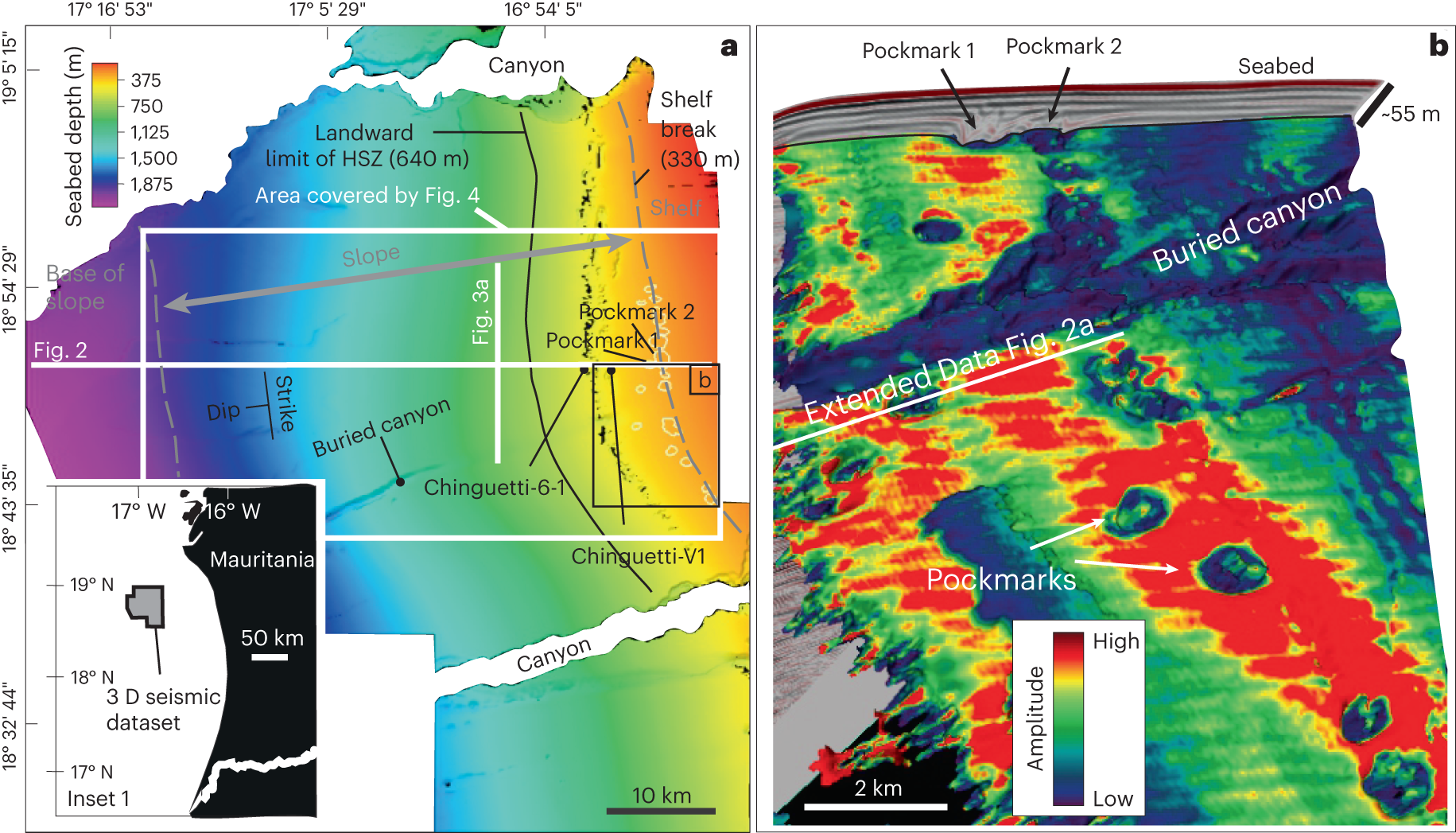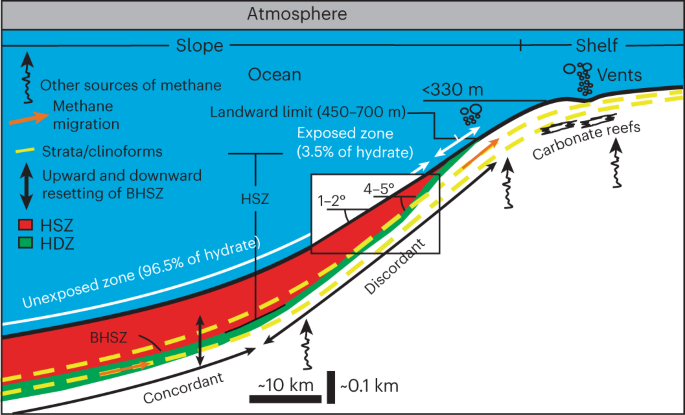Melting Fire-Ice: Study Finds Climate Change Can Cause Methane to be Released From the Deep Oceanhttps://phys.org/news/2023-12-fire-ice-climate-methane-deep-ocean.htmlAn international team of researchers led by Newcastle University found that as frozen methane and ice melts, methane—a potent greenhouse gas—is released and moves from the deepest parts of the continental slope to the edge of the underwater shelf. They even discovered a pocket that had moved 25 miles (40 kilometers).

Publishing in the journal
Nature Geoscience,
the researchers say this means that much more methane could potentially be vulnerable and released into the atmosphere as a result of climate warming. The scientists used advanced three-dimensional seismic imaging techniques to examine the portion of the hydrate that dissociated during climatic warming off the coast of Mauritania in Northwest Africa. They identified a specific case where dissociated methane migrated over 40 kilometers and was released through a field of underwater depressions, known as pockmarks, during past warm periods.
Lead author, Professor Richard Davies, Pro-Vice-Chancellor, Global and Sustainability, Newcastle University, said, "It was a COVID lockdown discovery, I revisited imaging of strata just under the modern seafloor offshore of Mauritania and pretty much stumbled over 23 pockmarks. Our work shows they formed because methane released from hydrate, from the deepest parts of the continental slope vented into the ocean. Scientists had previously thought this hydrate was not vulnerable to climatic warming, but we have shown that some of it is."

The results show that methane released from the hydrate stability zone traveled a significant distance toward land. Professor Dr. Christian Berndt, Head of the Research Unit Marine Geodynamics, GEOMAR, in Kiel, Germany, said, "This is an important discovery. So far, research efforts focused on the shallowest parts of the hydrate stability zone, because we thought that only this portion is sensitive to climate variations."
"The new data clearly show that far larger volumes of methane may be liberated from marine hydrates and we really have to get to the bottom of this to understand better the role of hydrates in the climate system."
 Long-distance migration and venting of methane after marine hydrate dissociation
Long-distance migration and venting of methane after marine hydrate dissociation,
Nature Geoscience (2023)
https://www.nature.com/articles/s41561-023-01333-w
